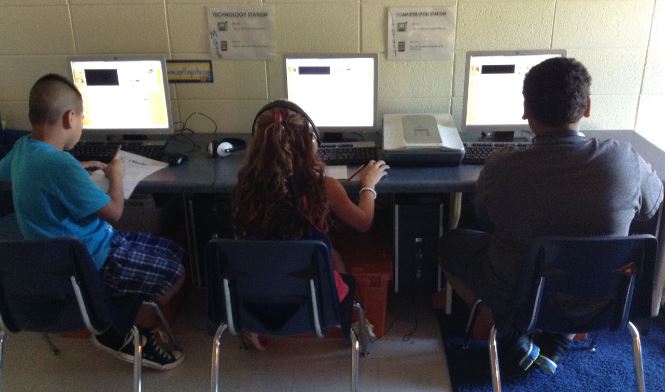All Your Parents | Part 5: Engage in Learning

With generous support from The Annenberg Foundation, NCFL developed All Your Parents = AYP, a parent involvement professional development framework. After a lengthy review of the current literature and successful parent involvement program models, and in consultation with parents and experts in the field, NCFL determined six important areas for successful engagement of parents to support children’s academic achievement.
Once teachers and parents have information, they usually feel more confident in their abilities. Professional development for teachers and training for parents should mirror each other and have the same end in mind — children’s academic success.
Key Ideas
- Schools provide the means for learning at school—curriculum, instructional strategies, and environment—to promote student success.
- Teachers use strategies and knowledge gained in professional development to engage parents as they support children’s learning.
- Parents provide a supportive home-learning environment to promote student success.
- Parents use the strategies and knowledge gained in parent education to support children’s learning at home.
- Parents and teachers form an equal partnership to support children’s learning—at home and at school.
Thoughts for Teachers
- Employ strategies learned in professional development to engage parents to support children’s achievement.
- Do you assess parents’ levels of involvement and determine how best to engage parents?
- Do you conduct parent workshops, family nights, or other activities to share information and strategies with parents?
- Do you use a variety of methods to share information?
- Do you schedule activities for parents during times that meet their needs?
- How do you support parents who need ideas of how to better engage their children?
Ideas for Parents
- Ask teachers for ways to better support the learning that is happening in the classroom.
- What support can you provide at home?
- Learn how to best structure time for homework.
- Provide experiences for children that support learning.
- Take advantage of sharing information and learning within everyday routines and experiences (e.g., mapping the bus route, buying groceries, cooking meals).
For more information, visit the other All Your Parent guides: